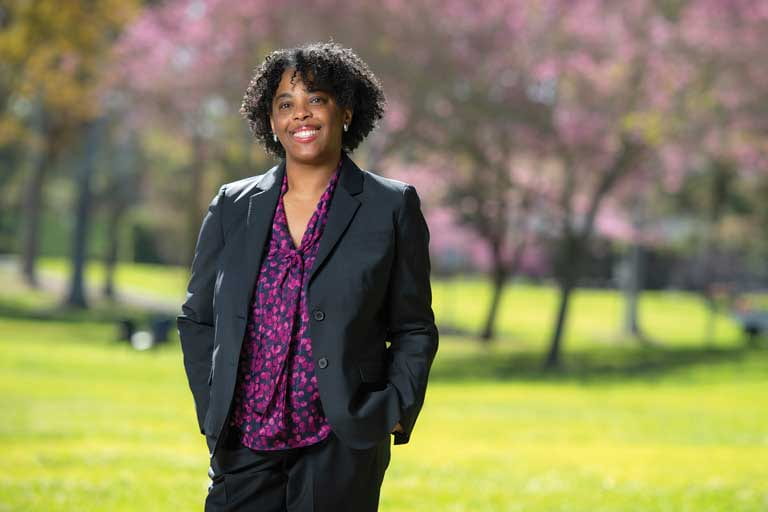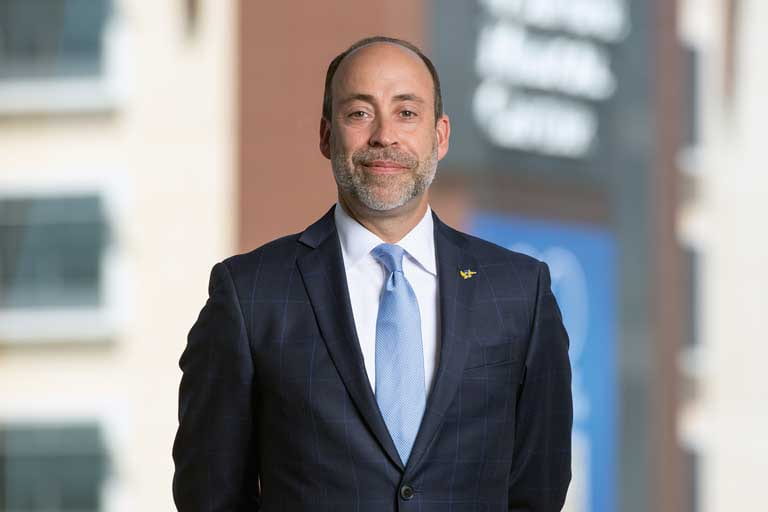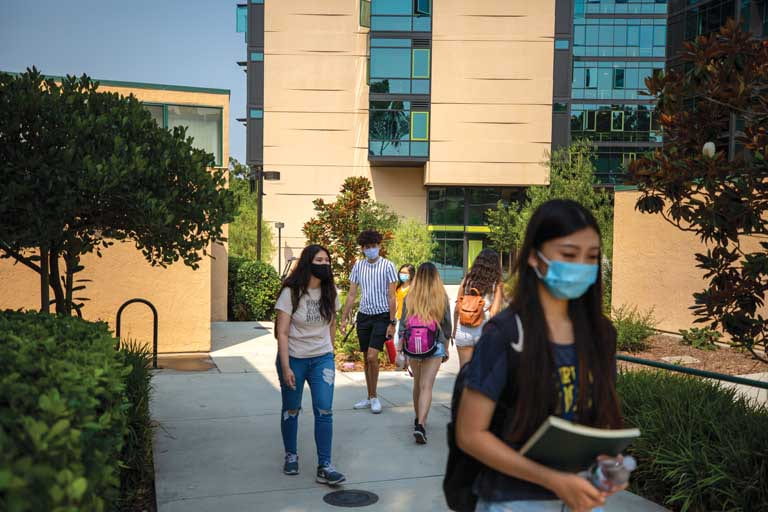Seizing Opportunities to Improve Campus Health
When opportunity knocks, Marcelle Hayashida answers. UCI’s associate vice chancellor for wellness, health & counseling services celebrates her 20th anniversary in academia this year.
It was a career path that didn’t cross her mind as she completed her Ph.D. in clinical psychology at the University of Michigan. However, appealing clinical positions were scarce upon graduation. When a tenure-track offer to teach psychology arrived from Pomona College, “I couldn’t resist the warmer weather or the opportunity to work with a prestigious institution filled with incredibly bright students,” she says.
It was the first of many doors that opened in unexpected and enticing directions for Hayashida. She balanced work as a therapist with teaching and research, joined the counseling center at the Claremont Colleges, and leveraged an interim associate dean position at Pomona College into the role of associate dean of students/dean of women. Since joining UCI in 2012, she has overseen eight centers, ranging from the Student Health Center and the Counseling Center to the Campus Assault Resources & Education office and the Disability Services Center.
“It’s been the story of my career: being told, ‘We don’t have that, but do you want to try this?’ and me saying yes to something that wasn’t what I was looking for but something even better,” Hayashida says. She spoke with UCI Magazine contributing writer Kristin Baird Rattini about her personal journey and caring for the UCI community during a pandemic.
What drew you to psychology?
I can’t pinpoint one specific experience or one moment where it clicked. It was just a fascination with helping people who were suffering and trying to figure out how people behave in groups.
What brought you to UCI?
Two words: Thomas Parham [UCI’s former vice chancellor for student affairs, currently president of Cal State Dominguez Hills]. This was someone whose works I had studied and taught. I was really excited just to meet him, even if I hadn’t been offered the job.
When I saw the job advertised, I initially thought, “Wow, this is a huge portfolio.” I was at a smaller school with one direct report and different resources. I knew I could do the job, but it would be a huge career jump. A friend said to me, “Marcelle, this position has your name all over it. You’ll get to do wellness; you are a psychologist. You’ll oversee disability services; you’re the disability coordinator at your school now. You would oversee campus recreation; you currently teach yoga sometimes to students. You need to apply.” When I interviewed, I knew that my colleagues would be really bright and that UCI had well-developed systems that worked well. I felt I could step in and put my spin on things.
What achievements at UCI are you most proud of?
When I got here, there was only one social worker. Since then, our social work team has exploded. You need to meet people’s psychosocial needs before they can thrive intellectually and academically. I’m proud that our campus provides that. We have a stellar team of people who care passionately and understand the larger mission we’re working toward. We’ve expanded the CARE office and added more comprehensive sexual and reproductive health services to the Student Health Center. I’m also happy we’ve been able to do more than just manage people and have clinical services: We’ve placed a larger emphasis on public health, something that’s important to the university. I’m on a committee to try to adapt the Okanagan Charter from Canada to the U.S. context. It’s a framework to promote the importance of holistic health and well-being on higher education campuses and embed wellness into policies.
How has your department rallied its resources to care for the UCI community during the pandemic?
From a tally we did in fall 2020, our campus social workers had 358 active cases, some of which involved helping find housing or food or problem-solving with finances. We screened student-athletes, had 339 intake meetings for our Disability Services Center, and even had 25 kids enrolled in virtual preschool in the fall through our child care services. We had 8,450 primary care telehealth visits at Student Health and four virtual psychotherapy groups run through the Counseling Center. We know that we’ll keep telehealth and telemedicine services going forward, and we’re making sure that our websites are user-friendly so that people can get the information they need.
I also oversee the Anteater Pledge Ambassadors team. From October through March of this year, our 200 members had 4,100 engagements promoting how students can keep themselves safe and reduce the spread of COVID-19. Our team is really proud of all our work.
“You need to meet people’s psychosocial
needs before they can thrive intellectually
and academically. I’m proud that our campus
provides that.”
There is much greater awareness of mental health because of the pandemic. How do you see approaches to mental health changing as a result?
What we learned during the pandemic is that there are a lot of other things that go into mental health beyond depression, anxiety and seeing a psychologist. What are you feeding yourself? How are you sleeping? What do your social connections look like? Do you feel included? What support are we offering for students of color, for low-income students, for undocumented students? We’ve learned a lot about all of these different threads that we need to weave together to support student mental health.
How do you practice self-care?
Sleep is extremely important to me and my health. I do yoga. I read a lot. I hang out with my kids and take walks in the neighborhood. Something I care a lot about from personal experience is the Crohn’s & Colitis Foundation. I’ve run two half-marathons in Las Vegas on behalf of the foundation. So that’s a form of self-care that’s a way of helping myself and the foundation but also giving back to other people.



